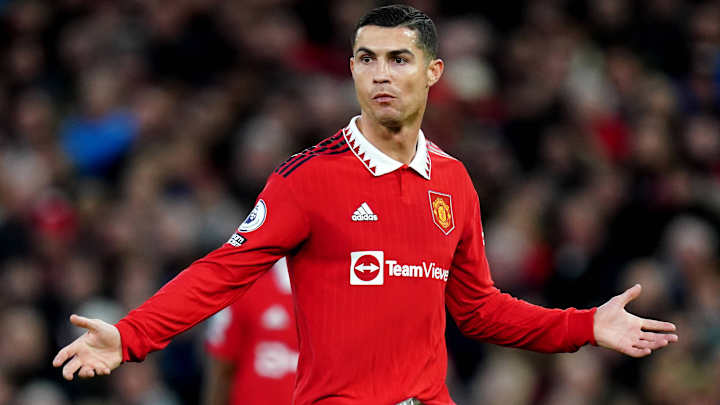Even Cristiano Ronaldo Couldn’t Escape Modern Soccer’s Greater Forces

Very few players end their careers in glory. Clubs can be brutal in offloading those whose usefulness has expired. Often the end, accepting that the body is no longer capable of doing what once it did, comes with a sense of bitterness. Yet there seems a special sadness in the news that Cristiano Ronaldo has signed for the Saudi club Al-Nassr.
Only last summer, Ronaldo turned down a move to Saudi Arabia, insisting he still had a role to play at Manchester United and that even if Erik ten Hag didn’t want him, there were a host of other European clubs lining up to sign him. A single-minded belief he could be the best, that he was the best, defined Ronaldo’s career. It was what drove him to become the physical specimen he did, what made him one of the greatest goalscorers the game has known, but by last summer it had become self-delusion.
Ten Hag was, seemingly, keen to work with Ronaldo, even though his hard-pressing style demands the sort of sense of defensive responsibility Ronaldo has rarely demonstrated. It didn’t take long, though, for their relationship to sour. Ronaldo left a pre-season friendly at half-time, his ego leading him to a tantrum. Ten Hag tried to work with him, but it didn’t work. He came off the bench in the defeat to Brighton and started the 4–0 reverse at Brentford, when he was dispossessed in the build-up to the fairest goal. He started only three further Premier League games: a defeat to Aston Villa, a 0–0 draw with Newcastle and a fortuitous 1–0 win over West Ham. Another early departure after being asked to come on late as a substitute effectively ended his United career.
What had been a suspicion over the previous few years suddenly became blindingly obvious. Ronaldo made teams worse. His apologists will point out that Juventus won two league titles with him and that he scored 81 league goals in his three full seasons in Italy, but Juventus always won the title, and as a team its goals per game dropped with Ronaldo. It was the same at United: He may have recorded 18 league goals in his first season, but the fluid counter-attacking football of Ole Gunnar Solskjaer was disrupted and United slumped from second in the table to sixth.
But it wasn’t just how Ronaldo played, the way time had sapped at his legs so he became even more immobile, so that in the end the sharpness that had still brought him goals was gone. It is that Ronaldo’s celebrity is so great that any club he plays for, no matter how grand, necessarily becomes FC Ronaldo. That was apparent also with Portugal at the World Cup. Ronaldo was finally dropped for the last-16 tie against Switzerland and, even though his replacement Goncalo Ramos played brilliantly and scored a hat trick, significant numbers in the crowd chanted for Ronaldo and cheered his every touch after he was finally brought on, celebrity trumping efficiency.
Al-Nassr will be quite happy to become FC Ronaldo. It will suddenly have a profile it has never had before. The Saudi league will become a topic of discussion in a way it has never been before. Rudi Garcia, the coach, may not be overly happy given he, too, favors a hard-pressing style to which Ronaldo is entirely unsuited, but then Ronaldo probably will still score goals in the Saudi league. Accommodations can be found.
Saudi Arabia now effectively has the two most celebrated players of the past two decades signed up, with Lionel Messi contracted as a tourism ambassador. It would be extremely surprising if both Messi and Ronaldo were not in some way co-opted into Saudi Arabia’s bid to host the 2030 World Cup (probably in coalition with Egypt and Turkey). Football has long been a tool of state propaganda, and now its two brightest stars of this century may, too, be utilized in this way.
Financially, Ronaldo will do very well, with his deal estimated to be worth over $200 million, including commercial agreements, by the time his contract expires in June 2025. And perhaps that will be worth it for him. But is the money alone why he spent all those years assiduously training? Was this what all that sacrifice and dedication was for?
It’s hard not to think that there is something undignified about a great career coming to an end in this way, highly remunerated for sure, but a huge step down in terms of level of football, and essentially being used as part of a grand sportswashing project. But perhaps this is all football these days, sporting considerations lost beside commerce and great state propaganda projects, greater forces even Ronaldo’s immense celebrity cannot escape.

An accomplished author of multiple books, Jonathan Wilson is one of the world’s preeminent minds on soccer tactics and history.